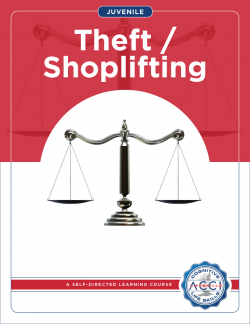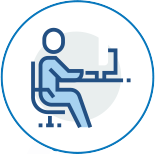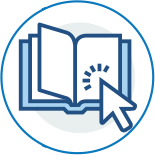


This course focuses on the many reasons for theft and shoplifting. It not only demonstrates the impact on businesses but also the consequences for the perpetrators as they trade a few dollars for a criminal record. It also demonstrates 10 proven cognitive skills for successful living, and how to avoid the common thinking traps that are easy to fall into.
This cognitive restructuring course intervenes in the faulty think-ing processes that allow crimes of moral turpitude to take place. Teenagers keep pushing the boundaries to see how far they can go while still getting away with it. This course challenges the cognitive domain while offering solutions in the affective domain. Like all cognitive restructuring courses, this course was designed to create cognitive dissonance as students’ criminal values clash with accepted society values. Shoplifting or theft is Just a symptom of deeper issues.



Shoplifting starts in the beginning, not the middle.
There are no excuses, just consequences.
Change your thoughts, change your life.
One is nurturing, the other is vengeful.
Change yourself first. then influence others.
Either you control or you are controlled.
Life is a mirror; what you reflect out, you get back.

Course Format: eLearning and Printed Workbook
eLearning Length: 650 Slides
Scientific Model: Cognitive Restructuring
Author and Publisher: ACCI Lifeskills
Item Number: W 139
Workbook Pages: 48
Course Length: -8 hours

